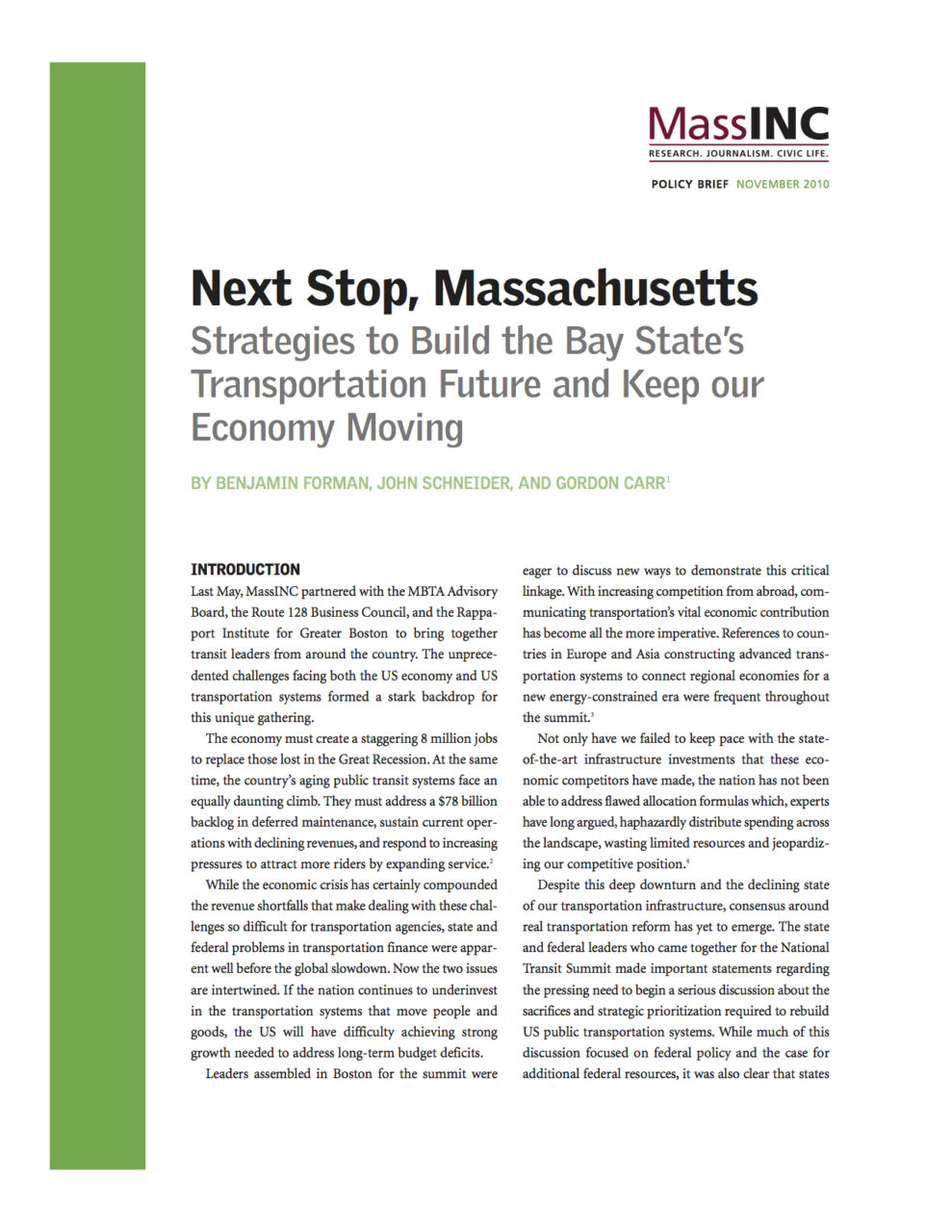Building from discussions at May’s National Transit Summit, a new strategy paper, Next Stop, Massachusetts focuses on state transportation policies fundamental to the Commonwealth’s long-term economic competitiveness.
Despite years of independent reports sounding the alarm, the state’s inadequate transportation finances continue to place this critical infrastructure in jeopardy. This stubborn challenge persists because transportation lacks a broad base of support and the public is not adequately informed about transportation infrastructure’s critical economic contribution.
In response, the strategy paper offers a comprehensive plan that would set the stage for long-term stability.
The centerpiece of this strategy is regional financing for transportation. Raising funds regionally would allow different parts of the state to generate resources to meet their differing transportation needs.
Another critical component is offering voters greater control over transportation finances. Funding transportation with regional ballot measures has been very effective in other states. Experience shows that voters are unusually receptive to paying for transportation investments that will directly serve their communities.
This strategy paper follows a National Transit Summit co-hosted by MassINC last May. The conference featured Federal Transit Administrator, Peter Rogoff, and general managers from six of the country’s largest transit systems. At this national forum, leaders drew attention to the unsustainable finances of aging transportation systems central to U.S. growth and productivity
Additional recommendations include: unifying transportation stakeholders by making the business community, riders, and legislators more effective advocates; maximizing the economic impact of transportation spending by better integrating land use planning; making transportation spending more efficient by creating comprehensive cost/benefit criteria; and establishing an independent office to evaluate transportation investments against these benchmarks.
